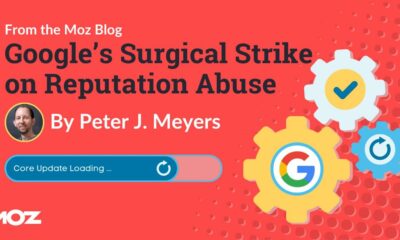SEO
10 Completely Free SEO Training Courses
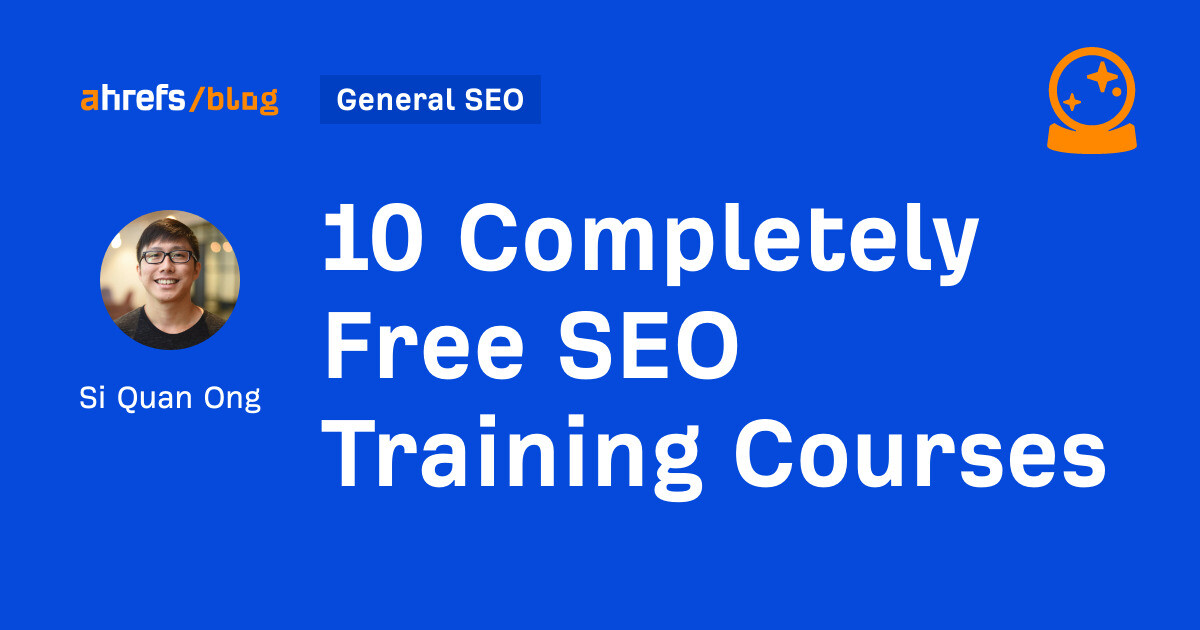
Learning SEO doesn’t have to break the bank. There are plenty of quality free SEO courses teaching everything from the basics to keyword research to link building.
Here are ten that won’t cost a dime.
Course provider: Ahrefs
Duration: 2 hours
Instructor(s): Sam Oh
Level: Beginner
Link: SEO Course for Beginners
What you’ll learn
- The fundamentals of what search engine optimization is and how it works
- Why SEO is important
- How to do keyword research
- How to optimize web pages for search engines
- Beginner-friendly link building strategies to get backlinks to your site
- Technical SEO best practices for beginners
This comprehensive course is ours and covers the fundamentals of SEO, including keyword research, on-page SEO, technical SEO, and link building.
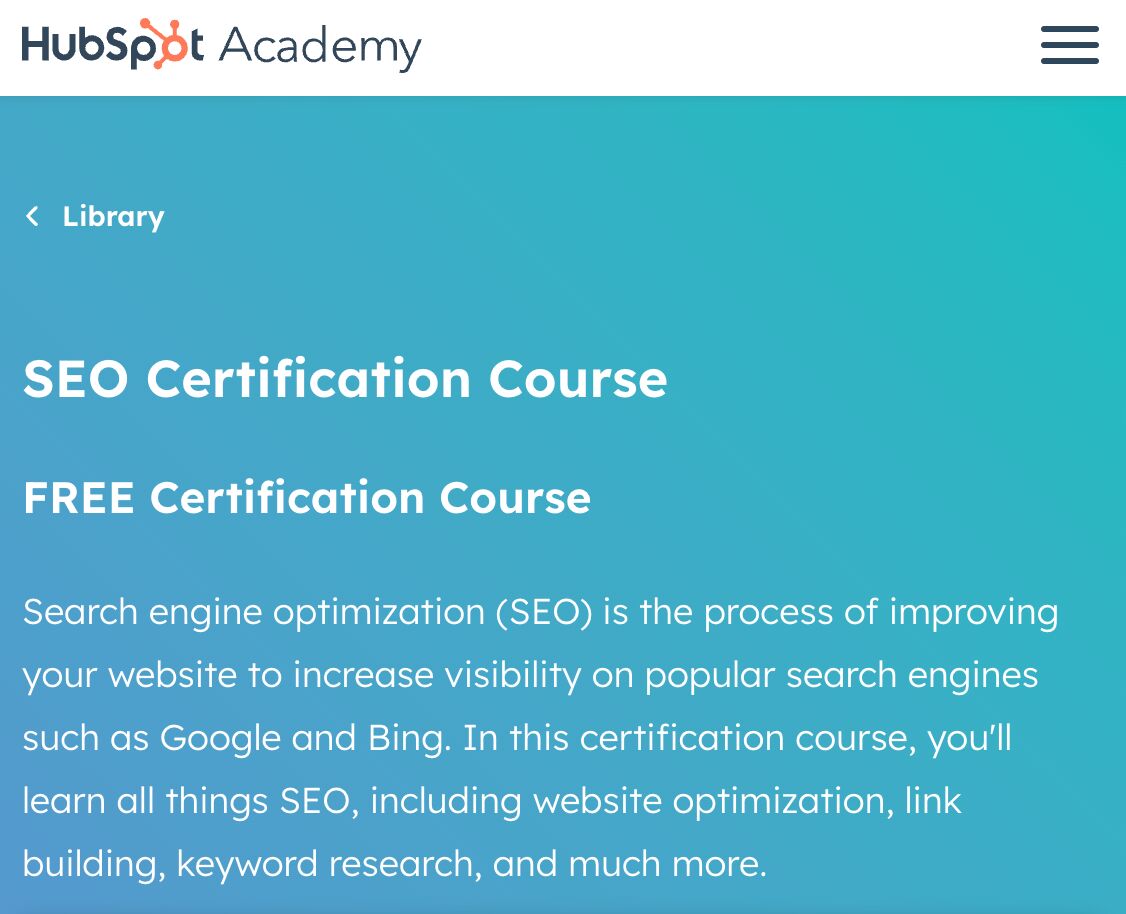

Course provider: HubSpot
Duration: 3 hours 51 minutes
Instructor(s): Rachel Sheldon, Matthew Howells-Barby
Level: Beginner
Link: SEO Certification Course
What you’ll learn
- How to evaluate and improve your website’s SEO
- How to build backlinks to your website at scale to increase your website’s visibility in organic search
- How to use insights from keyword research and reporting to improve your search performance
HubSpot’s SEO Training Course is tailored for marketers, content creators, and anyone looking to enhance their website’s visibility. Through practical lessons and real-world examples, the course participants will learn how to build a robust SEO strategy, analyze their website’s performance, and adapt to the changing algorithms of search engines.
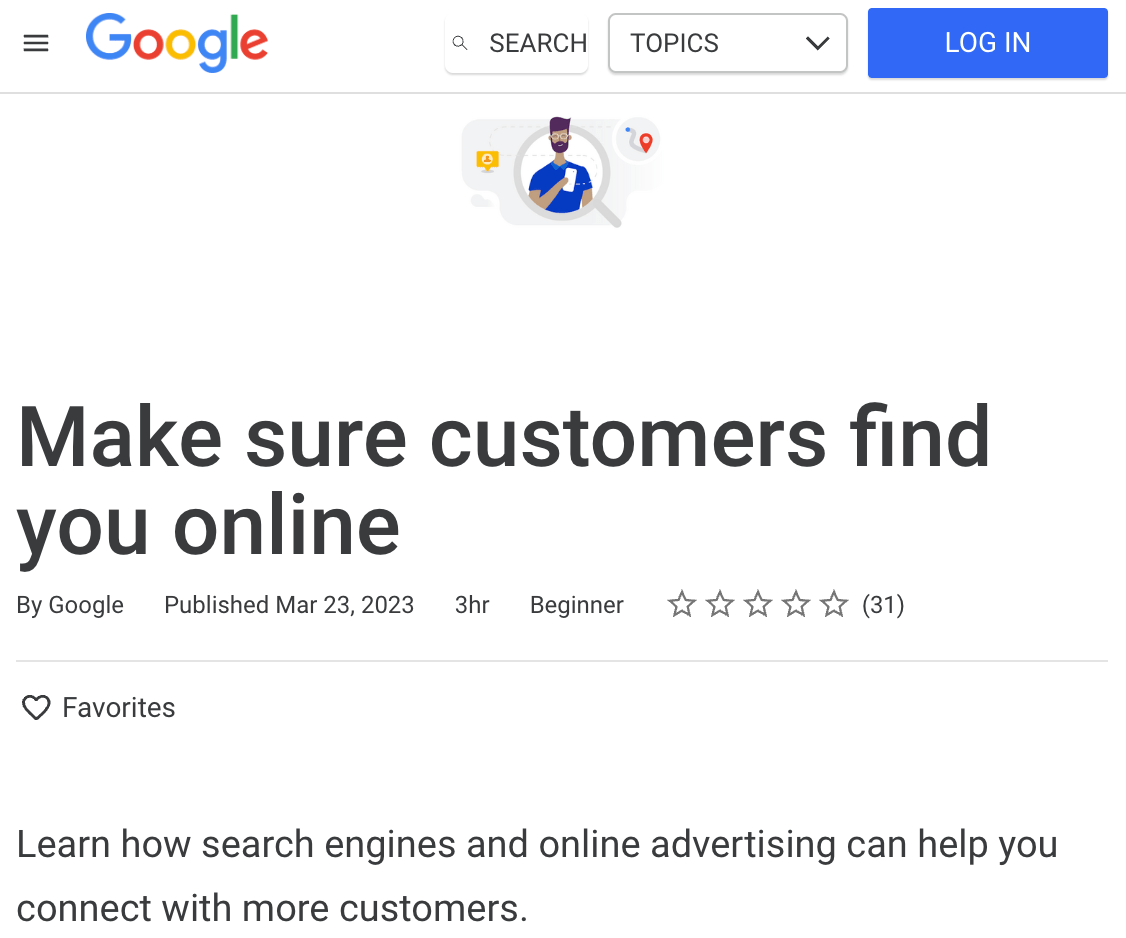

Course provider: Google
Duration: 3 hours
Instructor(s): Google
Level: Beginner
Link: Make Sure Customers Find You Online
What you’ll learn
- How to get started with search
- How to make search work for you
- How to get discovered with search
- How to help people nearby find you online
This free course from Google Skillshop helps businesses discover ways to reach and connect with more customers online. It covers improving SEO and using online advertising (SEM) to boost sales and awareness.
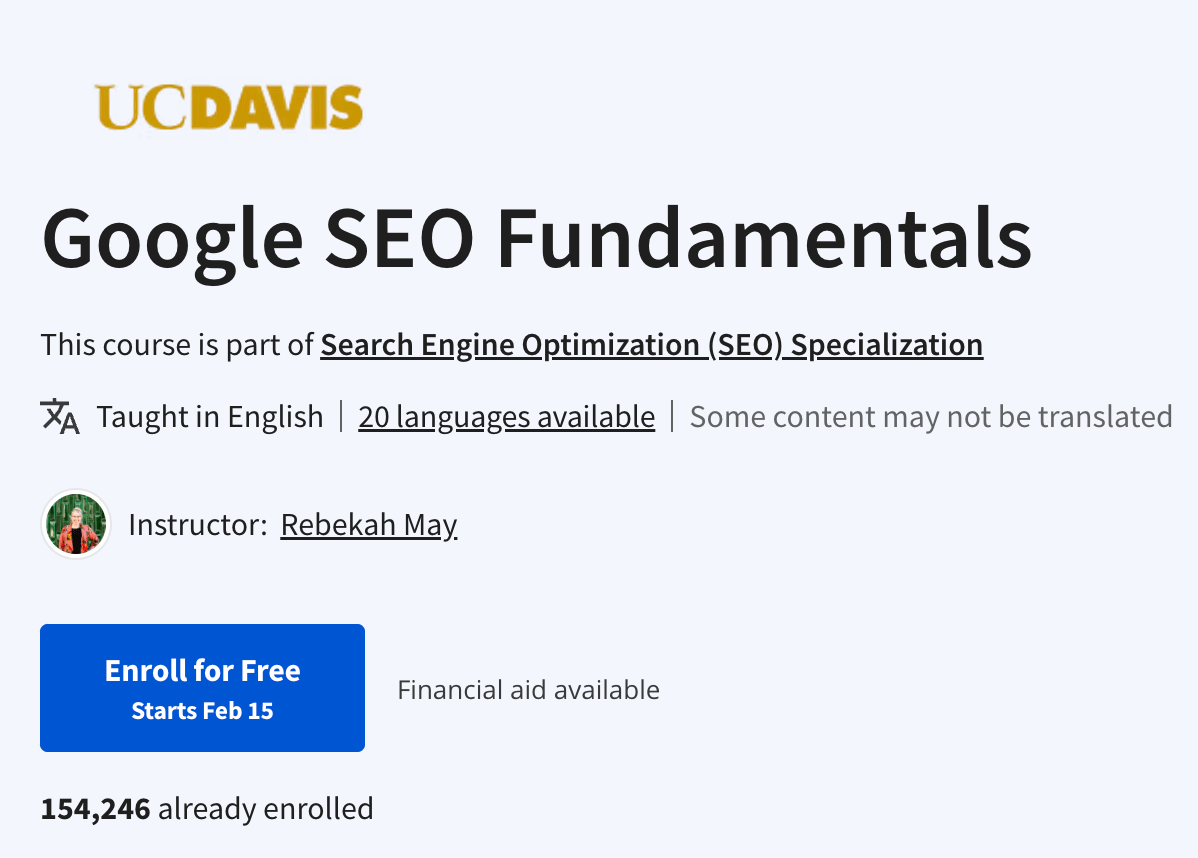

Course provider: University of California, Davis
Duration: 28 hours
Instructor(s): Rebekah May
Level: Beginner
Link: Google SEO Fundamentals
What you’ll learn
- How to complete a competitive analysis on a webpage
- How to interpret brand recognition through social media
- How to create sitemaps and robot.txt files, plan redirects, and manage site errors
- How to use a variety of SEO tools to conduct an audience analysis and develop personas of your ideal buyer
Offered by the University of California, Davis, this course on Coursera delves into the fundamental aspects of SEO, including how search engines work and how to implement effective SEO strategies to attract more organic traffic.
However, due to its length (28 hours), it may not be the most suitable if you want to learn SEO fast.
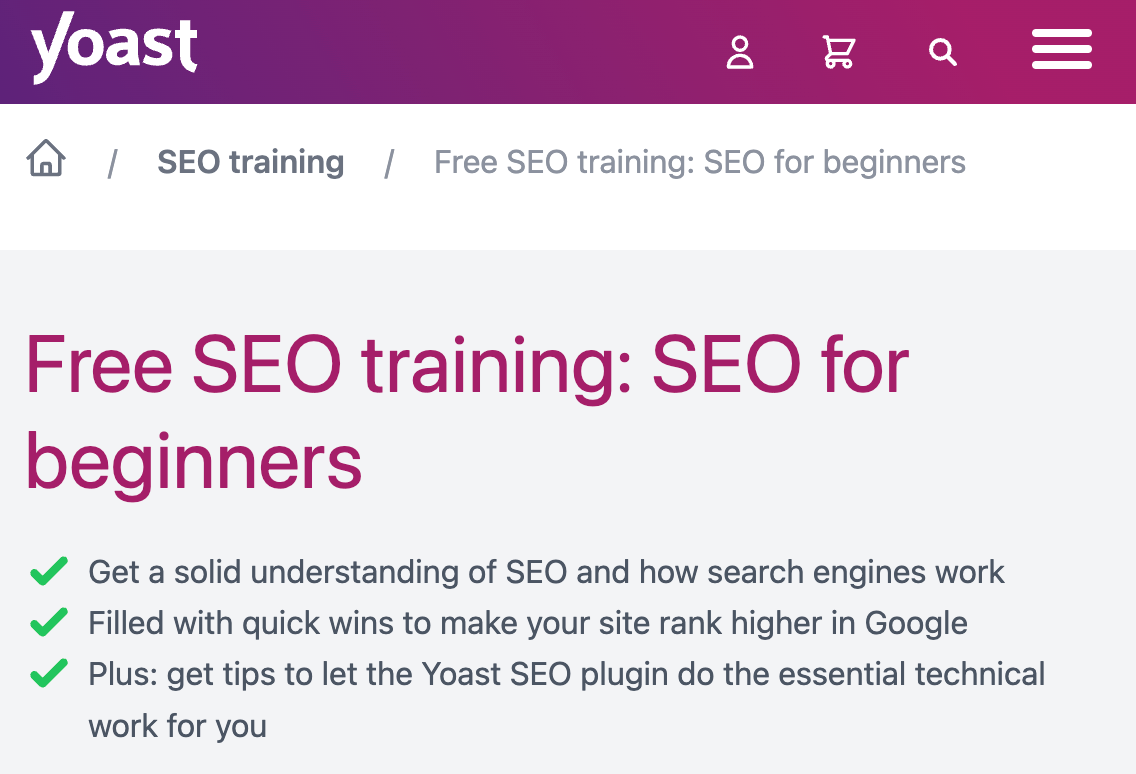

Course provider: Yoast
Duration: 2 hours
Instructor(s): Joost de Valk
Level: Beginner
Link: SEO for Beginners Training
What you’ll learn
- What SEO is and what Google does
- Tips for quick wins to improve your site
- Insights into the content and technical side of SEO
This free course discusses what SEO is and how it works. Some of the important points from the course are how to use keywords to optimize your website, how to write content that Google likes, and how to make your website crawlable by search engines.
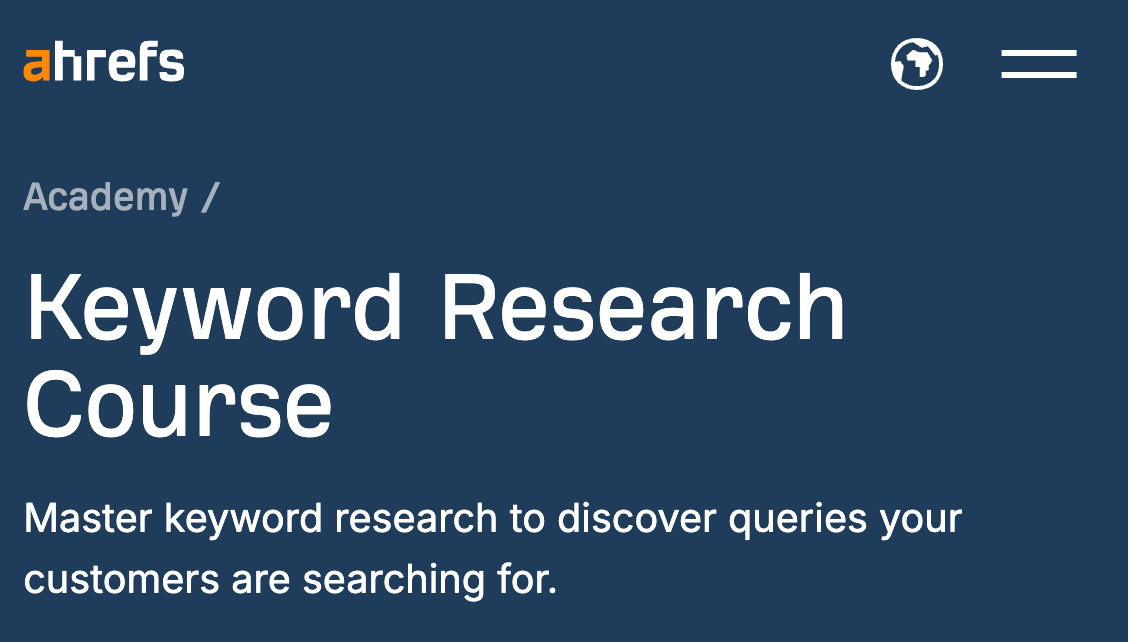

Course provider: Ahrefs
Duration: 2 hours
Instructor(s): Sam Oh
Level: Beginner
Link: Keyword Research Course
What you’ll learn
- How to do keyword research and drive targeted traffic to your website
This is our specialized course that focuses specifically on keyword research. It covers topics such as how to choose keywords, how to analyze search intent, and how to find low-competition keywords.
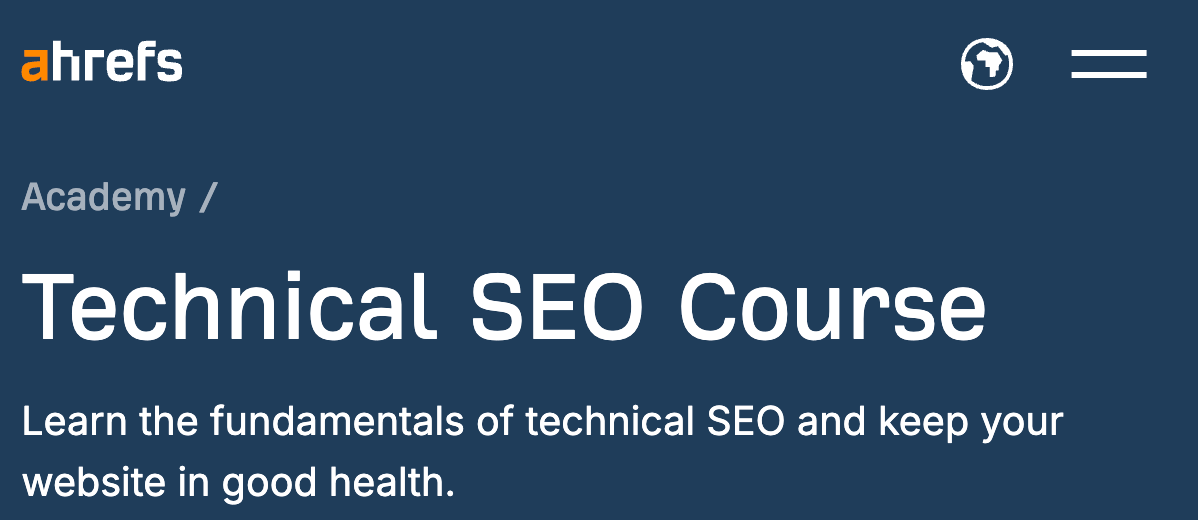

Course provider: Ahrefs
Duration: 1 hour 21 minutes
Instructor(s): Sam Oh
Level: Beginner to intermediate
Link: Technical SEO Course
What you’ll learn
- The fundamentals of technical SEO
- How to run a technical SEO audit
- How to optimize your website’s technical SEO
Another specialized course from us, this course is designed for those looking to dive deeper into the technical side of SEO. It covers advanced topics such as site audits, page speed optimization, and how to resolve common technical issues that can impact search rankings.


Course provider: Blue Array
Duration: 7 hours
Instructor(s): Damion Edwards
Level: Beginner to intermediate
Link: Technical SEO Certification
What you’ll learn
- What to consider when investigating a website from a technical perspective
- Which tools to use and how to interpret data
- How to crawl a website in the easiest and most efficient way possible
- What areas to check to comply with the Google Page Experience update
- How to choose structured data
- How to detect and resolve thin and duplicate content
- The common security issues and how to fix them
- Checking your internal linking to give your website the best chance possible to rank well
Aimed at professionals seeking to certify their expertise, this course covers a wide range of technical SEO topics, including crawling, indexing, ranking, and on-page optimization. From site architecture to schema markup, it equips learners with the skills to tackle technical challenges and improve website performance.
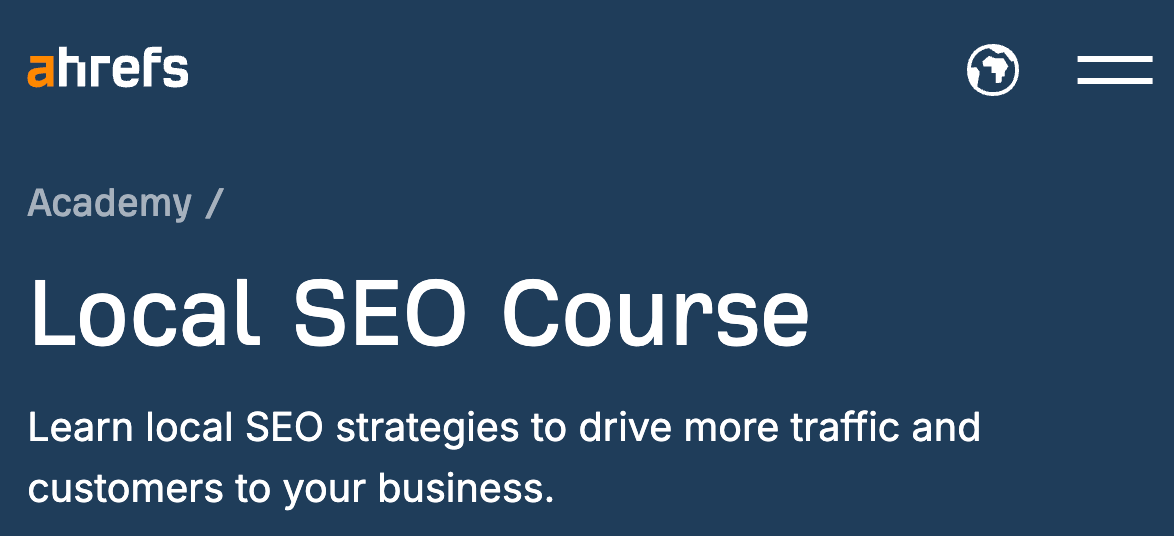

Course provider: Ahrefs
Duration: 44 minutes
Instructor(s): Sam Oh
Level: Beginner
Link: Local SEO Course
What you’ll learn
- How to do local SEO
- How to do local keyword research
- How to do local link building
Ideal for businesses targeting local customers, this course teaches the basics of optimizing for local search. It covers essential tactics for improving local visibility, such as Google Business Profile optimization and local keyword targeting.
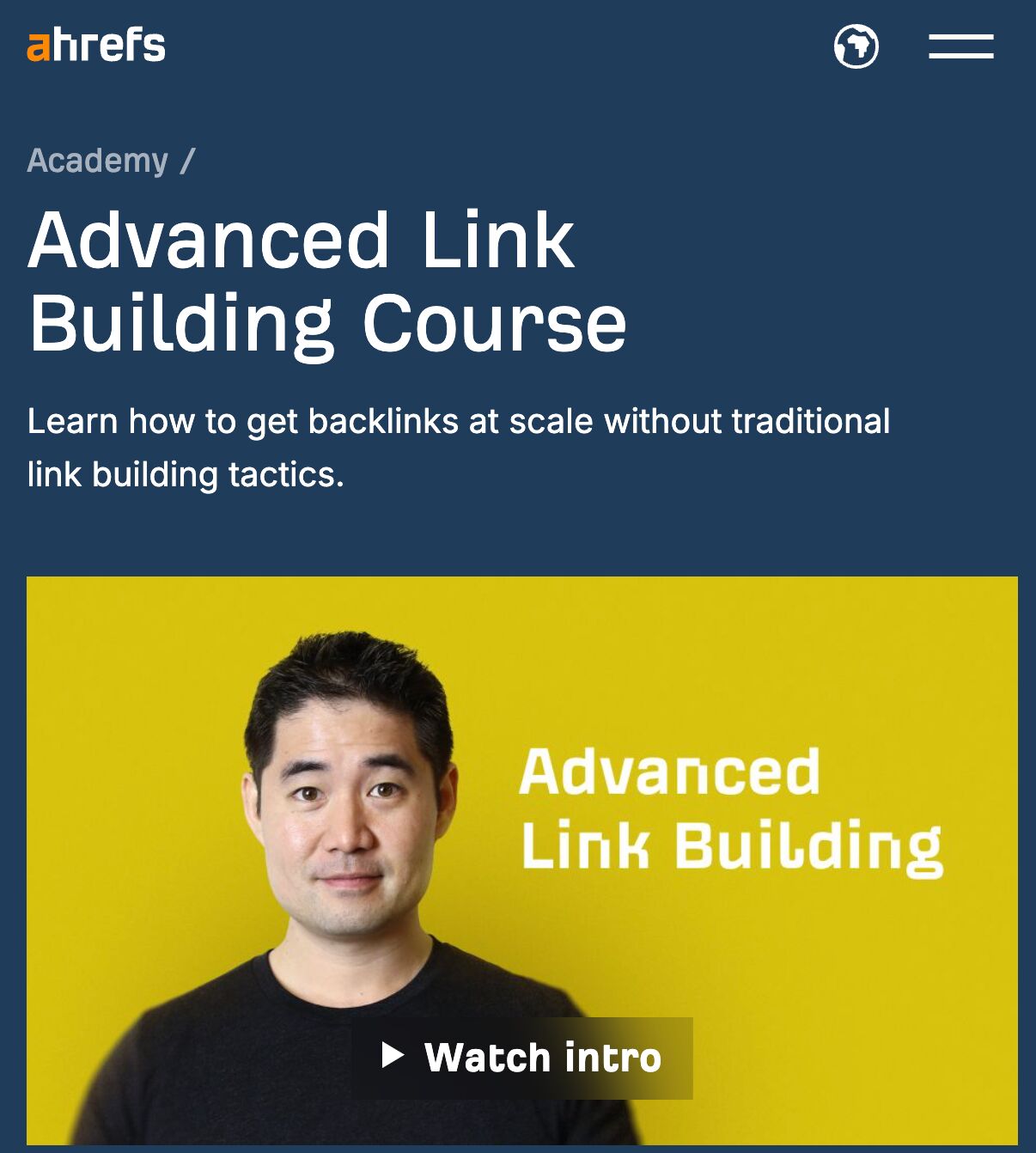

Course provider: Ahrefs
Duration: 1 hour 48 minutes
Instructor(s): Sam Oh
Level: Intermediate to advanced
Link: Advanced Link Building Course
What you’ll learn
- How to find prospects with the “seed and lookalike” approach
- How to validate link building campaigns with a “blitz list”
- How to craft personalized and benefit-rich outreach emails
- How to create, structure and manage a link building team
- How to scale your link building operations
Focusing on one of the most challenging aspects of SEO, Sam shares his years of experience creating campaigns, sending outreach emails, and building teams. This is a must-finish course if you need help building and scaling your link building operations.
Final thoughts
The best way to learn SEO is to do.
So, don’t just go through the courses, take notes, and leave it aside. You need to actually execute to find out what works and what doesn’t. Create a website, implement the ideas you’re learning, and see if you can get more organic traffic to it.
That’s how you become an SEO pro.
SEO
Google Rolls Out New ‘Web’ Filter For Search Results
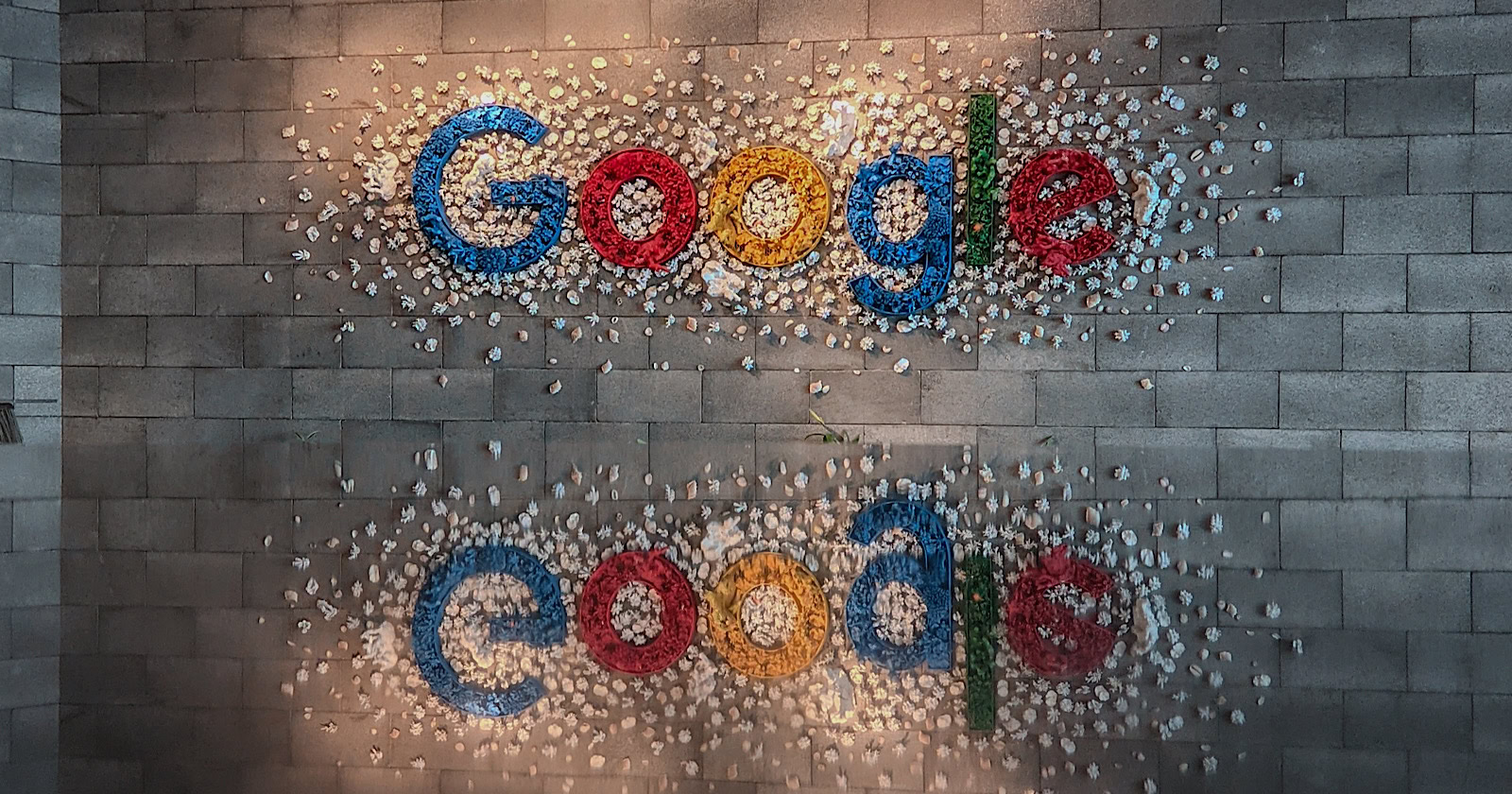
Google is introducing a filter that allows you to view only text-based webpages in search results.
The “Web” filter, rolling out globally over the next two days, addresses demand from searchers who prefer a stripped-down, simplified view of search results.
Danny Sullivan, Google’s Search Liaison, states in an announcement:
“We’ve added this after hearing from some that there are times when they’d prefer to just see links to web pages in their search results, such as if they’re looking for longer-form text documents, using a device with limited internet access, or those who just prefer text-based results shown separately from search features.”
We’ve added this after hearing from some that there are times when they’d prefer to just see links to web pages in their search results, such as if they’re looking for longer-form text documents, using a device with limited internet access, or those who just prefer text-based…
— Google SearchLiaison (@searchliaison) May 14, 2024
The new functionality is a throwback to when search results were more straightforward. Now, they often combine rich media like images, videos, and shopping ads alongside the traditional list of web links.
How It Works
On mobile devices, the “Web” filter will be displayed alongside other filter options like “Images” and “News.”
If Google’s systems don’t automatically surface it based on the search query, desktop users may need to select “More” to access it.
 Screenshot from: twitter.com/GoogleSearchLiaison, May 2024.
Screenshot from: twitter.com/GoogleSearchLiaison, May 2024.More About Google Search Filters
Google’s search filters allow you to narrow results by type. The options displayed are dynamically generated based on your search query and what Google’s systems determine could be most relevant.
The “All Filters” option provides access to filters that are not shown automatically.
Alongside filters, Google also displays “Topics” – suggested related terms that can further refine or expand a user’s original query into new areas of exploration.
For more about Google’s search filters, see its official help page.
Featured Image: egaranugrah/Shutterstock
SEO
Why Google Can’t Tell You About Every Ranking Drop

In a recent Twitter exchange, Google’s Search Liaison, Danny Sullivan, provided insight into how the search engine handles algorithmic spam actions and ranking drops.
The discussion was sparked by a website owner’s complaint about a significant traffic loss and the inability to request a manual review.
Sullivan clarified that a site could be affected by an algorithmic spam action or simply not ranking well due to other factors.
He emphasized that many sites experiencing ranking drops mistakenly attribute it to an algorithmic spam action when that may not be the case.
“I’ve looked at many sites where people have complained about losing rankings and decide they have a algorithmic spam action against them, but they don’t. “
Sullivan’s full statement will help you understand Google’s transparency challenges.
Additionally, he explains why the desire for manual review to override automated rankings may be misguided.
Two different things. A site could have an algorithmic spam action. A site could be not ranking well because other systems that *are not about spam* just don’t see it as helpful.
I’ve looked at many sites where people have complained about losing rankings and decide they have a…
— Google SearchLiaison (@searchliaison) May 13, 2024
Challenges In Transparency & Manual Intervention
Sullivan acknowledged the idea of providing more transparency in Search Console, potentially notifying site owners of algorithmic actions similar to manual actions.
However, he highlighted two key challenges:
- Revealing algorithmic spam indicators could allow bad actors to game the system.
- Algorithmic actions are not site-specific and cannot be manually lifted.
Sullivan expressed sympathy for the frustration of not knowing the cause of a traffic drop and the inability to communicate with someone about it.
However, he cautioned against the desire for a manual intervention to override the automated systems’ rankings.
Sullivan states:
“…you don’t really want to think “Oh, I just wish I had a manual action, that would be so much easier.” You really don’t want your individual site coming the attention of our spam analysts. First, it’s not like manual actions are somehow instantly processed. Second, it’s just something we know about a site going forward, especially if it says it has change but hasn’t really.”
Determining Content Helpfulness & Reliability
Moving beyond spam, Sullivan discussed various systems that assess the helpfulness, usefulness, and reliability of individual content and sites.
He acknowledged that these systems are imperfect and some high-quality sites may not be recognized as well as they should be.
“Some of them ranking really well. But they’ve moved down a bit in small positions enough that the traffic drop is notable. They assume they have fundamental issues but don’t, really — which is why we added a whole section about this to our debugging traffic drops page.”
Sullivan revealed ongoing discussions about providing more indicators in Search Console to help creators understand their content’s performance.
“Another thing I’ve been discussing, and I’m not alone in this, is could we do more in Search Console to show some of these indicators. This is all challenging similar to all the stuff I said about spam, about how not wanting to let the systems get gamed, and also how there’s then no button we would push that’s like “actually more useful than our automated systems think — rank it better!” But maybe there’s a way we can find to share more, in a way that helps everyone and coupled with better guidance, would help creators.”
Advocacy For Small Publishers & Positive Progress
In response to a suggestion from Brandon Saltalamacchia, founder of RetroDodo, about manually reviewing “good” sites and providing guidance, Sullivan shared his thoughts on potential solutions.
He mentioned exploring ideas such as self-declaration through structured data for small publishers and learning from that information to make positive changes.
“I have some thoughts I’ve been exploring and proposing on what we might do with small publishers and self-declaring with structured data and how we might learn from that and use that in various ways. Which is getting way ahead of myself and the usual no promises but yes, I think and hope for ways to move ahead more positively.”
Sullivan said he can’t make promises or implement changes overnight, but he expressed hope for finding ways to move forward positively.
Featured Image: Tero Vesalainen/Shutterstock
SEO
56 Google Search Statistics to Bookmark for 2024
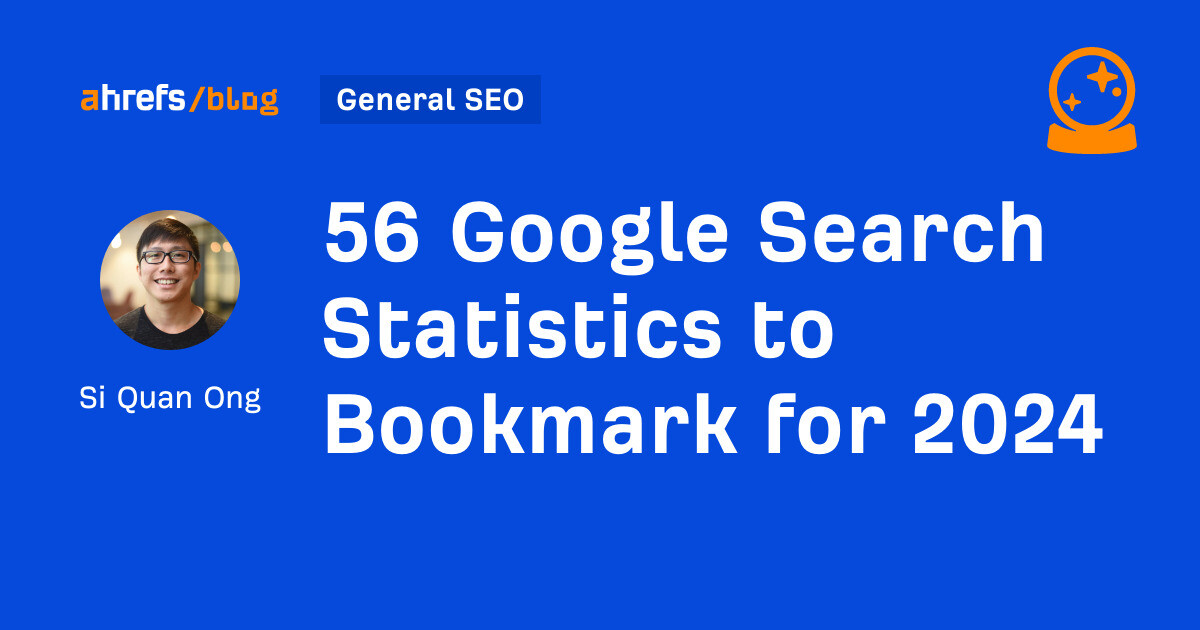
If you’re curious about the state of Google search in 2024, look no further.
Each year we pick, vet, and categorize a list of up-to-date statistics to give you insights from trusted sources on Google search trends.
- Google has a web index of “about 400 billion documents”. (The Capitol Forum)
- Google’s search index is over 100 million gigabytes in size. (Google)
- There are an estimated 3.5 billion searches on Google each day. (Internet Live Stats)
- 61.5% of desktop searches and 34.4% of mobile searches result in no clicks. (SparkToro)
- 15% of all Google searches have never been searched before. (Google)
- 94.74% of keywords get 10 monthly searches or fewer. (Ahrefs)
- The most searched keyword in the US and globally is “YouTube,” and youtube.com gets the most traffic from Google. (Ahrefs)
- 96.55% of all pages get zero search traffic from Google. (Ahrefs)
- 50-65% of all number-one spots are dominated by featured snippets. (Authority Hacker)
- Reddit is the most popular domain for product review queries. (Detailed)
- Google is the most used search engine in the world, with a mobile market share of 95.32% and a desktop market share of 81.95%. (Statista)
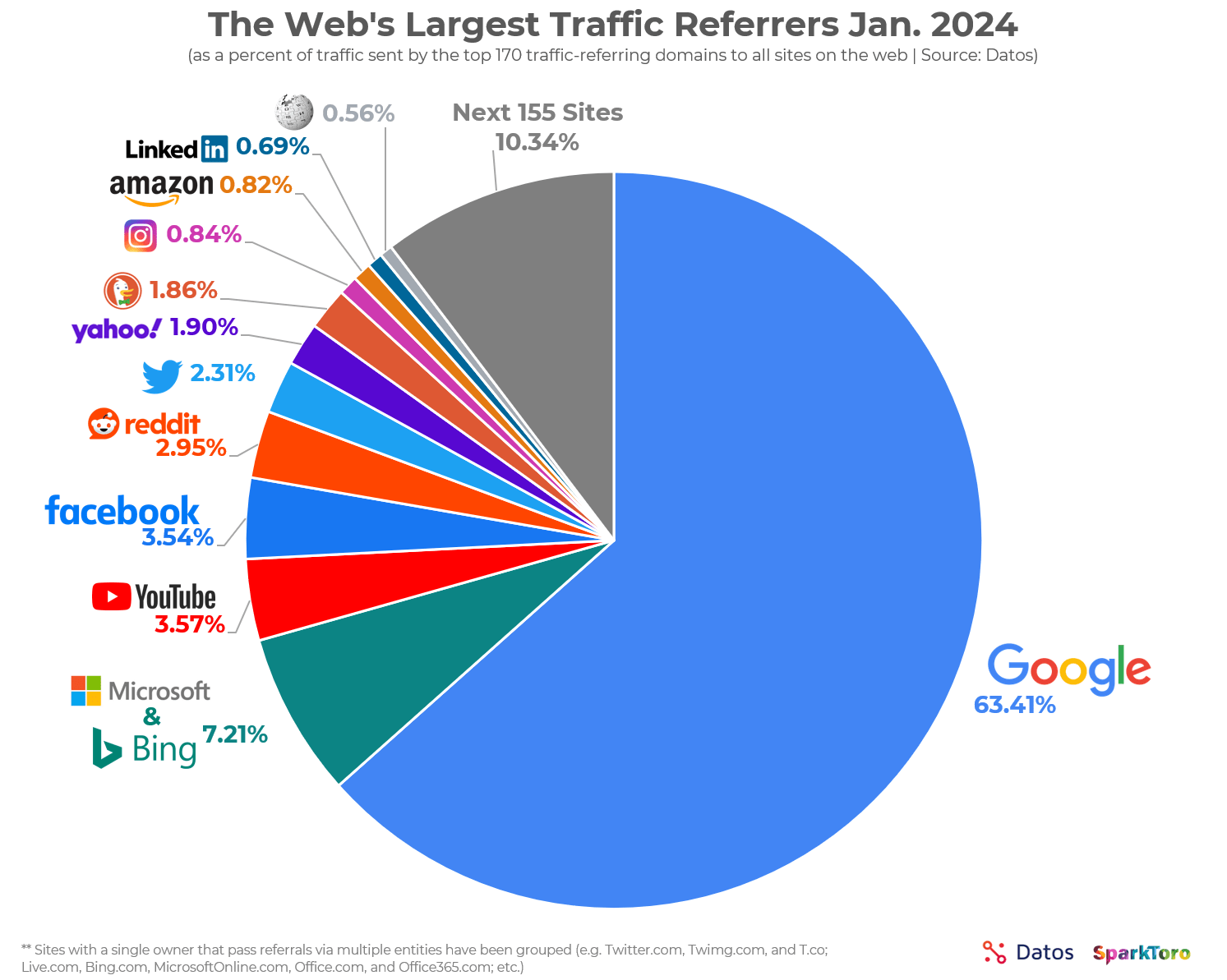

- Google.com generated 84.2 billion visits a month in 2023. (Statista)
- Google generated $307.4 billion in revenue in 2023. (Alphabet Investor Relations)
- 63.41% of all US web traffic referrals come from Google. (SparkToro)
- 92.96% of global traffic comes from Google Search, Google Images, and Google Maps. (SparkToro)
- Only 49% of Gen Z women use Google as their search engine. The rest use TikTok. (Search Engine Land)
- 58.67% of all website traffic worldwide comes from mobile phones. (Statista)
- 57% of local search queries are submitted using a mobile device or tablet. (ReviewTrackers)
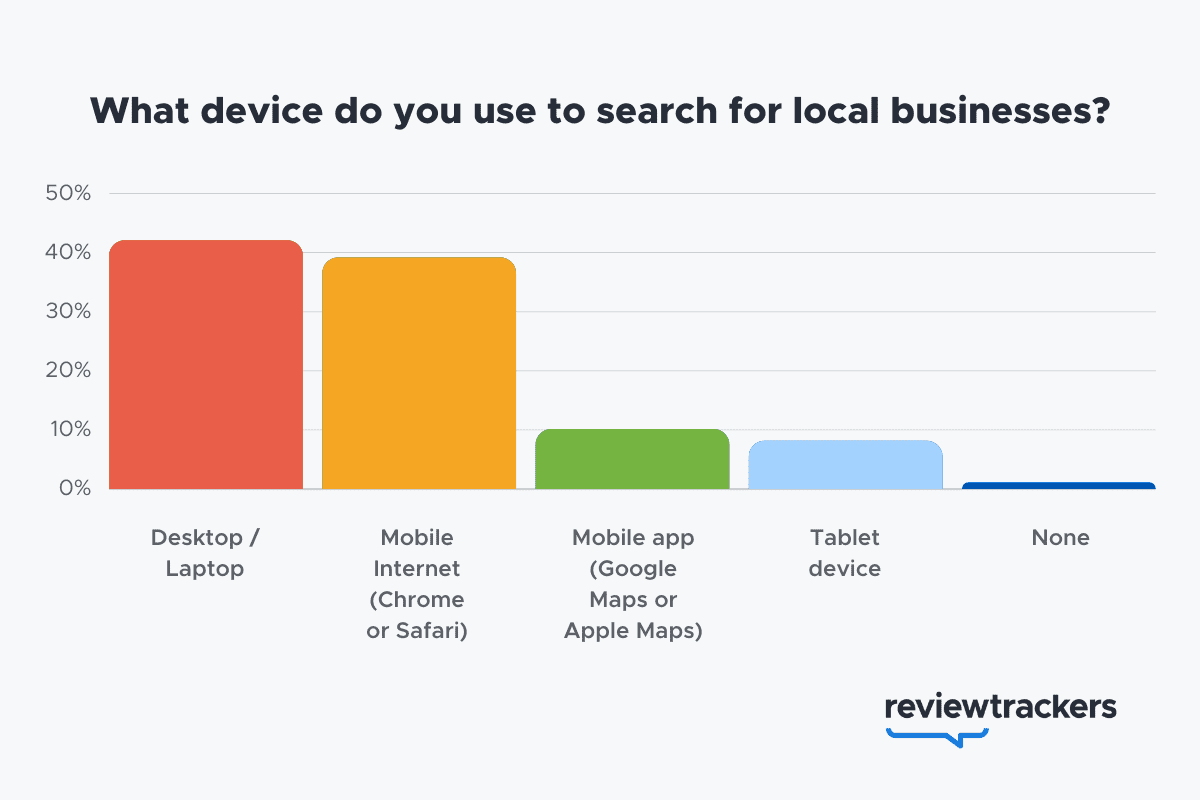

- 51% of smartphone users have discovered a new company or product when conducting a search on their smartphones. (Think With Google)
- 54% of smartphone users search for business hours, and 53% search for directions to local stores. (Think With Google)
- 18% of local searches on smartphones lead to a purchase within a day vs. 7% of non-local searches. (Think With Google)
- 56% of in-store shoppers used their smartphones to shop or research items while they were in-store. (Think With Google)
- 60% of smartphone users have contacted a business directly using the search results (e.g., “click to call” option). (Think With Google)
- 63.6% of consumers say they are likely to check reviews on Google before visiting a business location. (ReviewTrackers)
- 88% of consumers would use a business that replies to all of its reviews. (BrightLocal)
- Customers are 2.7 times more likely to consider a business reputable if they find a complete Business Profile on Google Search and Maps. (Google)
- Customers are 70% more likely to visit and 50% more likely to consider purchasing from businesses with a complete Business Profile. (Google)
- 76% of people who search on their smartphones for something nearby visit a business within a day. (Think With Google)
- 28% of searches for something nearby result in a purchase. (Think With Google)
- Mobile searches for “store open near me” (such as, “grocery store open near me” have grown by over 250% in the last two years. (Think With Google)
- People use Google Lens for 12 billion visual searches a month. (Google)
- 50% of online shoppers say images helped them decide what to buy. (Think With Google)
- There are an estimated 136 billion indexed images on Google Image Search. (Photutorial)
- 15.8% of Google SERPs show images. (Moz)
- People click on 3D images almost 50% more than static ones. (Google)
- More than 800 million people use Google Discover monthly to stay updated on their interests. (Google)
- 46% of Google Discover URLs are news sites, 44% e-commerce, 7% entertainment, and 2% travel. (Search Engine Journal)
- Even though news sites accounted for under 50% of Google Discover URLs, they received 99% of Discover clicks. (Search Engine Journal)
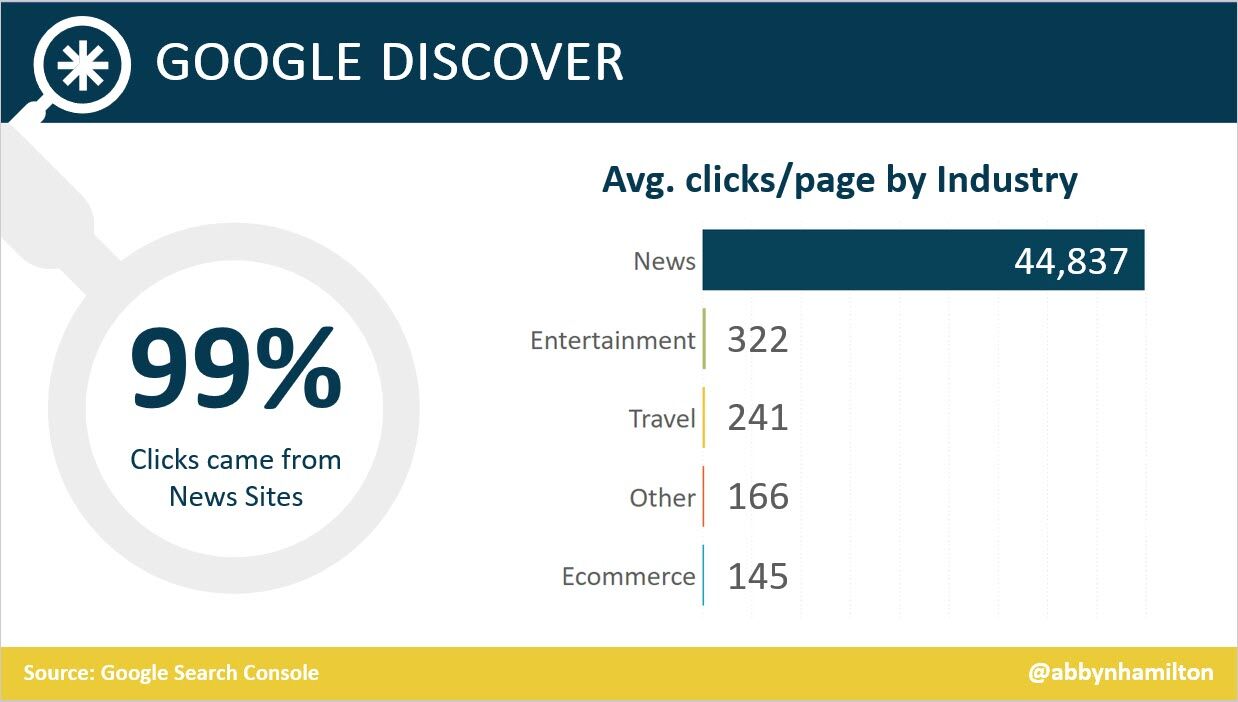

- Most Google Discover URLs only receive traffic for three to four days, with most of that traffic occurring one to two days after publishing. (Search Engine Journal)
- The clickthrough rate (CTR) for Google Discover is 11%. (Search Engine Journal)
- 91.45% of search volumes in Google Ads Keyword Planner are overestimates. (Ahrefs)
- For every $1 a business spends on Google Ads, they receive $8 in profit through Google Search and Ads. (Google)
- Google removed 5.5 billion ads, suspended 12.7 million advertiser accounts, restricted over 6.9 billion ads, and restricted ads from showing up on 2.1 billion publisher pages in 2023. (Google)
- The average shopping click-through rate (CTR) across all industries is 0.86% for Google Ads. (Wordstream)
- The average shopping cost per click (CPC) across all industries is $0.66 for Google Ads. (Wordstream)
- The average shopping conversion rate (CVR) across all industries is 1.91% for Google Ads. (Wordstream)
- 58% of consumers ages 25-34 use voice search daily. (UpCity)
- 16% of people use voice search for local “near me” searches. (UpCity)
- 67% of consumers say they’re very likely to use voice search when seeking information. (UpCity)
- Active users of the Google Assistant grew 4X over the past year, as of 2019. (Think With Google)
- Google Assistant hit 1 billion app installs. (Android Police)
- AI-generated answers from SGE were available for 91% of entertainment queries but only 17% of healthcare queries. (Statista)
- The AI-generated answers in Google’s Search Generative Experience (SGE) do not match any links from the top 10 Google organic search results 93.8% of the time. (Search Engine Journal)
- Google displays a Search Generative element for 86.8% of all search queries. (Authoritas)
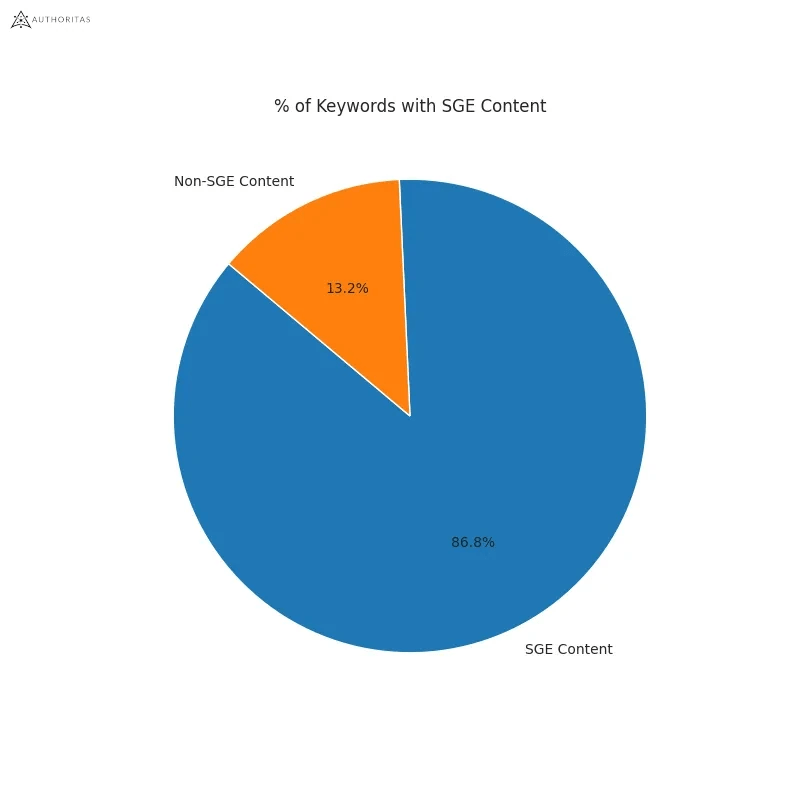

- 62% of generative links came from sources outside the top 10 ranking organic domains. Only 20.1% of generative URLs directly match an organic URL ranking on page one. (Authoritas)
- 70% of SEOs said that they were worried about the impact of SGE on organic search (Aira)
Learn more
Check out more resources on how Google works:
-

 PPC7 days ago
PPC7 days agoHow the TikTok Algorithm Works in 2024 (+9 Ways to Go Viral)
-

 SEO6 days ago
SEO6 days agoHow to Use Keywords for SEO: The Complete Beginner’s Guide
-

 MARKETING7 days ago
MARKETING7 days agoHow To Protect Your People and Brand
-
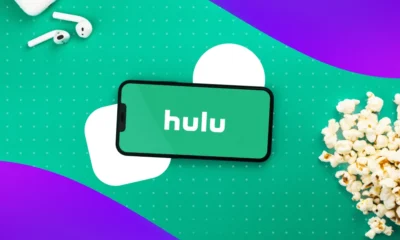
 MARKETING4 days ago
MARKETING4 days agoAdvertising on Hulu: Ad Formats, Examples & Tips
-

 MARKETING5 days ago
MARKETING5 days agoUpdates to data build service for better developer experiences
-

 MARKETING1 day ago
MARKETING1 day ago18 Events and Conferences for Black Entrepreneurs in 2024
-

 MARKETING6 days ago
MARKETING6 days agoThe Ultimate Guide to Email Marketing
-
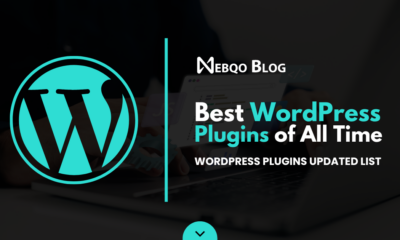
 WORDPRESS4 days ago
WORDPRESS4 days agoBest WordPress Plugins of All Time: Updated List for 2024


